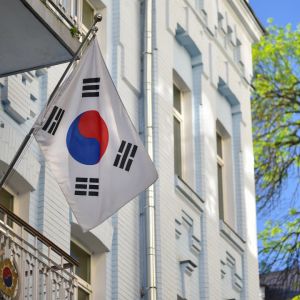The U.S. and South Korea agreed on Wednesday not to manipulate foreign exchange rates for trade advantage, but reserve them for combating excessive volatility. The decision doesn’t include a bilateral currency swap line. According to a joint statement released on October 1, the U.S. and South Korea reaffirmed their commitment to avoid manipulating the international monetary system, as outlined in the IMF Articles of Agreement. The initiative aims to present an effective balance of payments adjustment and unfair competitive advantage. Both parties aim to prevent unfair competitive advantage Washington and Seoul also agreed that any macroprudential or capital flow measures will not target exchange rates for trade advantage. The decision from both countries mirrors an agreement between the U.S. and Japan announced in August. In Japan’s deal, there was no mention that foreign exchange rates had to be market-determined. Unlike the Japan deal, the U.S.-South Korea agreement stipulates that both countries will continue to monitor currency market stability. The statement also highlighted that government investment vehicles will invest abroad for risk-adjusted return and diversification purposes, and not to target the exchange rate for competitive purposes. South Korea’s National Pension Service, the world’s third-largest pension fund, was not explicitly mentioned in the statement. The fund has emerged as a point of concern during Seoul’s trade negotiations with Washington. The report revealed that the U.S. has kept South Korea on its list of countries to monitor for their foreign exchange policies. Seoul was removed from the list in November 2023 for the first time since April 2016, but reappeared in November 2024. According to the report , South Korea utilizes the NPS funds for exchange rate intervention, with the U.S. stating that its use of funds for foreign exchange hedging could impact the Korean won’s value. The U.S. Department of the Treasury noted in its foreign exchange report released in June that there was a surge in foreign assets of the NPS and its swap line with the Bank of Korea. The report raised concerns among market participants that it might be regarded as a tool for currency intervention. Seoul also requested the exclusion of a bilateral currency swap line to address the foreign exchange implications of a $350 billion investment package agreed by both parties during trade negotiations in July. “Since the agreement sets mutual standards for foreign exchange policy with the U.S., it can be interpreted to mean that as long as these standards are upheld, South Korea is unlikely to be designated a currency manipulator.” -Jung Yue-jin, Chief Executive of South Korea’s Ministry of Economy and Finance. The U.S. and South Korea agreed that market intervention should be used to tackle excess volatility and disorderly movements in exchange rates. Both countries also agreed that market interventions would be considered equally appropriate for combating excessively volatile or disorderly depreciation or appreciation. Seoul plans monthly exchange of market operations with the U.S. The statement also reveals that Seoul agreed to exchange its market intervention operations with the U.S. every month. A South Korean official also mentioned that public disclosures will continue to be made every quarter, with a three-month delay. South Korea will disclose its foreign exchange reserves data and forward positions on a monthly basis to enhance communication and monitor foreign exchange market developments. The country will also reveal its currency composition of central bank reserves on an annual basis, despite the data already being publicly available. Seoul has maintained currency policy consultations with the U.S. through a channel between finance officials since it was put on the agenda at the opening round of trade negotiations in April. The country’s Ministry of Finance acknowledged that the latest initiative reaffirms the importance of close communication and mutual trust between the two countries’ financial authorities in ensuring foreign exchange market stability. Both countries agreed in July to reduce U.S. tariffs on Korean imports, including automobiles, from 25% to 15%. South Korea also pledged to invest $350 billion in the U.S. as part of the deal, but the initiative has stalled due to Seoul’s concerns over the foreign exchange implications. Join a premium crypto trading community free for 30 days - normally $100/mo.















